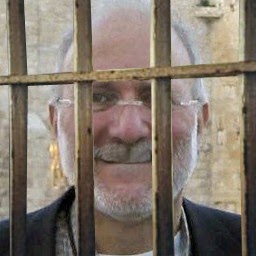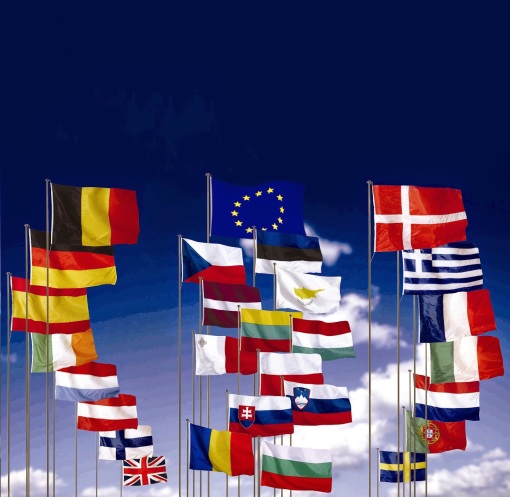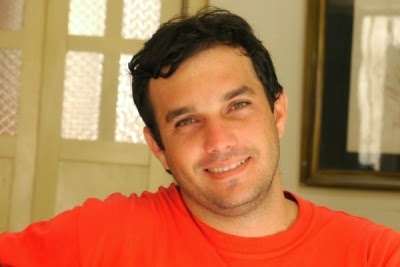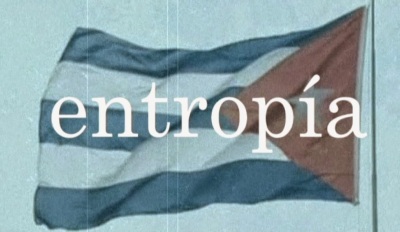
“Get out of Cuba TYRANT” / This island is mine”
Tempting the Cuban Transition
Orlando Luis Pardo Lazo
FOLLOW THIS EVENT ONLINE HERE
Since December 17th, when President Obama and General Raul Castro performed their simultaneous speeches, many Americans insist on congratulating me. I wonder why no Cuban has congratulated me so far, and why I still haven’t congratulated any other Cuban, whether in favor or against the US embargo against our country, whether on the Island or in exile.
I always respond to my foreign colleagues with a twisted-smiling emoticon. As a writer, I’m aware that language is not enough when feelings and facts seem altogether indistinguishable.
Let’s try now an answer from the viewpoint of digital dissidence, from the initial skepticism about the Cuban alternative blogosphere to the enthusiasm of today about the achievements of cyber-activists on the Island. So that tomorrow’s disappointment doesn’t take us by surprise.
Let me start by recalling that many people think that Cubans have already waited for democracy for so long, that we could wait for just a little longer. President Obama, with his historical speech for the “normalization” of US-Cuba relations, is also legitimizing a non-normal government that has never consulted my people about our rights to live in truth and liberty.
Obama’s military counterpart, Raul Castro, successor by blood of his brother Fidel, didn’t grant a single demand of our civil society, recently best represented through peaceful cyber-activism. The octogenarian made obvious that communism with the surplus value of State capitalism was the model to be imposed to all Cubans, whose civic leaders were left out during the secret negotiations between power elites. If many pro-democracy activists feel betrayed it is because blogging on the Island was struggling precisely for citizens’ voices to be taken into account, and to hold accountable our personalistic regime. But transparency, like heaven, can wait.
Rafael Rojas, a renowned Cuban essayist summarizes this in his book The Art of Waiting. Oswaldo Payá, founder of the Christian Liberation Movement on the island, called this self-transition a Fraudulent Change. Rojas is forbidden to live in his country. Payá, who collected more than 25,000 signatures in order to constitutionally democratize our society, like Polish priest Popiełuszko in the mid-80s, was assassinated in July 2012 after a car crash provoked by the secret police.
The Obama administration is not willing to mention deadly details like this in his New Deal with Cuba, designed so that the Revolution mutates in the Chinese way from dictatorship to dictatocracy. The White House seeks to make profits before other competing nations invest in the Island, as well as to prevent social unrest that could end in a migratory stampede towards South Florida. Since 1959, the Castros have always been using such a “human missile” crisis to negotiate with the US.
The struggle of civil resistance in Cuba is as long as the Revolution itself, which has abolished all kind of dissent. That’s why our nation is split apart, with 20% of our population residing elsewhere, in a kind of pedestrian’s plebiscite in which we Cubans say farewell to our proletarian paradise.
During the last years a small group of critical bloggers have been reporting insights behind the Cuban Curtain, most of them available at the websites VocesCubanas.com, HavanaTimes.org, and translated to English by the volunteer project TranslatingCuba.com.
Several of these independent communicators, like Yoani Sanchez —the blogger of Generation Y— have received international awards and, after the migratory reform that abolished the exit permit that turned all Cubans into hostages, many have been invited to forums that empower our impact on global public opinion, making more visible the cause of denouncing human rights violations, but also raising awareness about the complexities of day-to-day life in such a closed society, where marginalization and corruption have replaced ideology by inertia, discipline by deception, and ethics by extortion, with an anthropological damage that it will take generations to heal.
Cuban bloggers are usually not members of any opposition organizations, all of which are illegal under the rule of one political party, one press, one worker’s union, one non independent judicial and legislative system. But bloggers have helped many opposition leaders and political prisoners to reshape their communication strategy, by teaching them —in independent projects like the Blogger Academy and Festival Click— how to use social networks under the restrictive conditions of Cuba; a country that still offers no public internet service, despite the fiber optic cable that connects us with Venezuela. Although Obama has offered to let American communication companies to provide internet to the Island, Castro has declined because of national security concerns. So we are still waiting for the lifting of this other embargo of the Cuban government against the Cuban people.
Besides censorship, interrogations, threats, public repudiation, arrests, and job dismissal against independent bloggers, the Ministry of the Interior has created an official blogosphere that now outnumbers the critical voices of Cuban cyberspace. They connect to the internet in their workplaces and mainly from the infamous University of Information Sciences, where the ironically-called Operation Truth searches the web to counteract any inconvenient tendency, by distorting forums and even by digital bullying. Thus, the belligerency of the Revolution has been copy-and-pasted into the virtual space. This is why Cuba is rated as an “internet predator” by the NGOs committed to freedom of expression, like Human Rights Watch, Reporters Without Borders and the Committee to Protect Journalists.
Given this harassment, some Cuban bloggers have ceased posting in their websites so as not to bring more difficulties to their family life. Others still publish but prefer not to be involved in confrontational events, like the photo-documentary contest “Pixel Country” or the filmed community debates “Estado de Sats” . Still others have committed exile . The majority of this civil minority keeps on organizing new initiatives like the free-lance 14yMedio.com for citizen journalism. The more fragile we become, the greater our certainty that we owe a more inclusive society to future generations. But without international solidarity we are helpless . The time to stop 21st century totalitarianisms is none other than today.
Castroism, with its dynastic style, is trying not to disappear with the original Castros and a 2.0 generation is already in position: Mariela Castro (now Deputy in the National Assembly) and Alejandro Castro (a high-ranked intelligence officer: our tropical version of Vladimir Putin). The successful marketing campaign of The Cuban Revolution is being reloaded. For example, questioning the Cuban establishment in US academies, sometimes is considered as non-progressive . At the same time, official bloggers are being authorized by the government to get training and fellowships in America, and then go back to Cuba as think tanks of our status quo.
The US Chamber of Commerce and Cuban American millionaires are eager not to be excluded from the investment schedule, despite that foreign companies can only pay their workers through monopolistic State enterprises, which retain most of their salaries. While Cuban army professionals are mutating from military to managers, in order to run our half-Marxist and half-market economy.
I’m not the spokesperson of disenchantment, since I still trust in a Cuba with respect for universal values like life, mercy, beauty, truth and liberty —the most natural and yet so difficult to attain in times of tyranny. The responsibility of every free man and woman of the world is to stand with the Cuban people who deserve not to wait any longer for our free nation.










